
LGBT
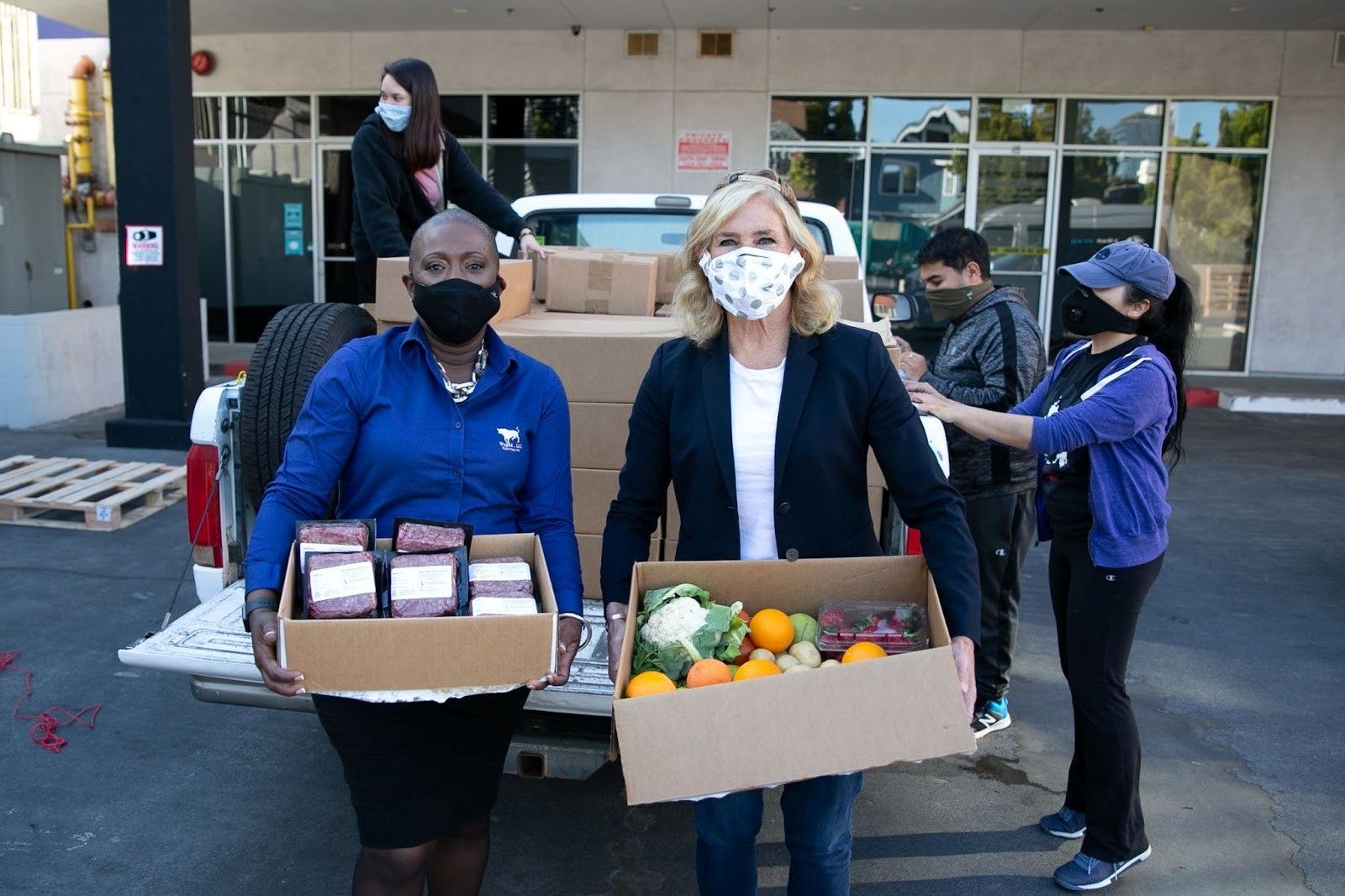
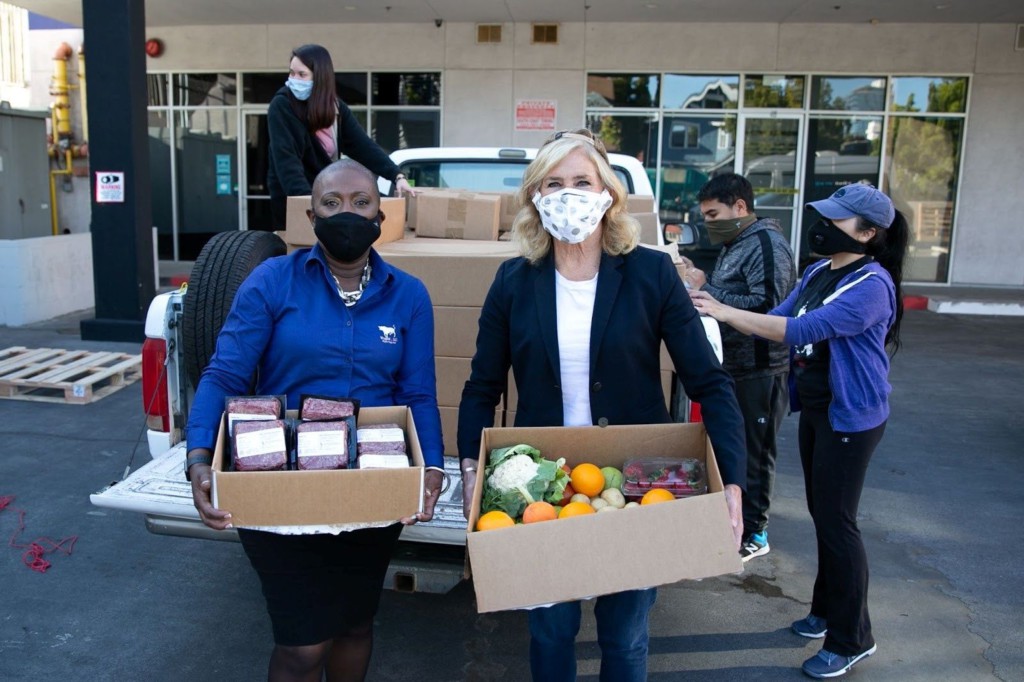
Kat and Spencer Gillette hold donated boxes of produce and Wagyu ground beef in Koreatown. (Photo © Office of Kat Taylor)
How has your philanthropy changed over time, especially in light of our growing awareness of our racial, democratic, and climate crises?
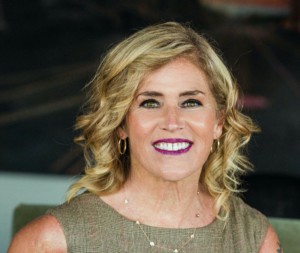
“We must do more than grant the earnings of capitalism; we must transfer and return that wealth itself.” (Photo © Office of Kat Taylor)
Over the past six decades, I have walked many paths in service of restoring social, racial, and gender justice and environmental well-being for an equitable and inclusive world. As co-founder and former CEO of a mission-driven community bank, I worked to finance a better world by prioritizing lending for social and environmental impact and changing the banking system for good. As a food producer and advocate, I have fought for greater racial and gender equity, environmental restoration, and economic resiliency in our food system. On that same road, my partner, Tom Steyer, and I took The Giving Pledge to give back 50% of our wealth during our lifetimes (because we always committed to giving back 100%), and I have always, and do, serve on the boards of several nonprofits.
Through all of these experiences I have learned much, but one lesson stands out most during these hardest of times: No amount of grant funding to address the symptoms of inequity will ever “fix” the extractive and exploitative economic system from which these grants come. We must do more than grant the earnings of capitalism; we must transfer and return that wealth itself.
What does centering marginalized communities mean to you in your grantmaking?
First, we need to do a better job of how we describe “assets” to empower communities that do not have them. Assets, simply put, are pieces of ownership that generate income every year — your house, stock in a company, your 401(k) retirement.
Second, to create a good life for all, we must shift these assets back to the communities that actually helped create them. We must move past the social dynamic of rich people making grants to marginalized communities in order to address deep social inequities in America. (Honestly, those grants have been paltry.) It’s time to return power — wealth, income, control, opportunity, and more — back to those from whom it has been taken.
How do you approach trust-based philanthropy?
Trust is a central ingredient to returning power to communities from which wealth has been stolen. It’s a commitment to return control and transfer productive equity capital that empowers community control and ownership of assets within those communities. And it’s a commitment to listen and learn from each other. We do better together than we ever could apart.
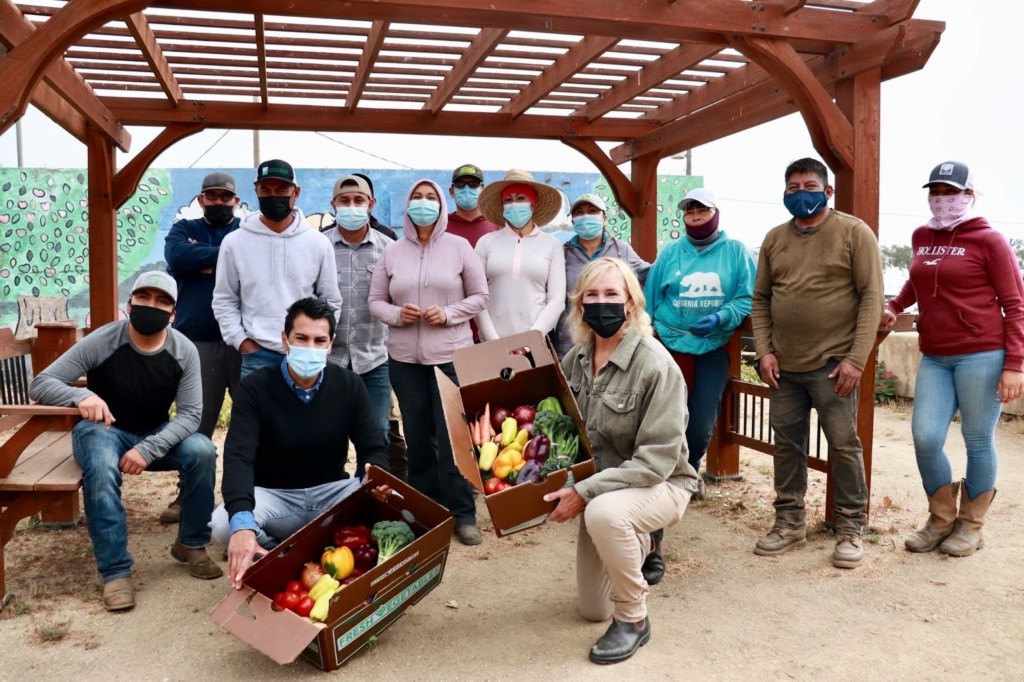
ALBA farmers, Assemblymember Robert Rivas (Chair – Assembly Committee on Agriculture) and Kat Taylor pose with Growing the Table food boxes about to be distributed to under-resourced Salinas communities – many of whom are the same as those growing organic whole foods. (Photo © Office of Kat Taylor)
What piece of advice would you share with our donor community?
We in the donor community can, if we wish, embark on trust-based philanthropy by listening to those who have experienced deprivation and injustice. They have unique insights into how to overcome that oppression and build a better society. This means doing more than making grants. It means helping communities of color unlock the same low-cost capital that white, wealthy donors and their communities have always been able to access and therefore make their desires come true. Why is that not the prerogative of the many communities left out of that calculus? I encourage donors to consider pledging their donor-advised funds to initiatives that secure community control and ownership of what gets built.
You have been a notable critic, and champion, of donor-advised funds (DAFs). What are the issues you see and what is the appropriate response? What should DAFs do to be a positive influence?
Currently, more than $1.3 trillion sits in private foundations and donor-advised funds, yet current law provides almost no incentives to ensure this funding is used for its intended purpose. Private foundations face only a 5% distribution requirement, which ensures their perpetuity at the expense of government tax proceeds that could do a better job of providing public goods like education and environmental protection. At least a higher minimum distribution would fund more nonprofits to address the symptoms of not providing those government benefits in the first place. And then there is NO legal requirement that DAFs ever distribute their money to operating charities, despite those generous tax breaks received upon their creation. This Faustian bargain is the equivalent of taxpayers picking up the tab for up to 74 cents of every dollar a donor deems charitable, while the other 26 cents often remain dormant.
It’s imperative to free up funds quicker to get working charities the resources they need … There could not be a more demanding time than now to break all the piggy banks.
I commend Tides for advocating for DAF partners to “get off your assets!” It’s imperative to free up funds quicker to get working charities the resources they need to serve under-resourced communities, especially when we see signs that democracy is fraying, government is beleaguered, climate events are accelerating, and justice long delayed is becoming justice denied. There could not be a more demanding time than now to break all the piggy banks.
I believe another way to give more power to the people on top of deploying our own is to modernize our charitable tax laws so that all charitable funds are optimized for positive impact. The Accelerating Charitable Efforts (ACE) Act, introduced in both the Senate and House, restores the balance between charitable tax breaks for donors and the actual benefits to charities and the people they serve. I urge my colleagues, peers, and those who care about the future and integrity and credibility of philanthropy to support the ACE Act.

LGBT
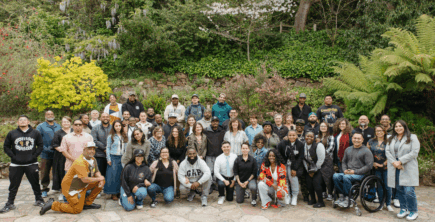
Corporate Partners

Philanthropy

Read the stories and hear the voices of social change leaders fighting for justice.